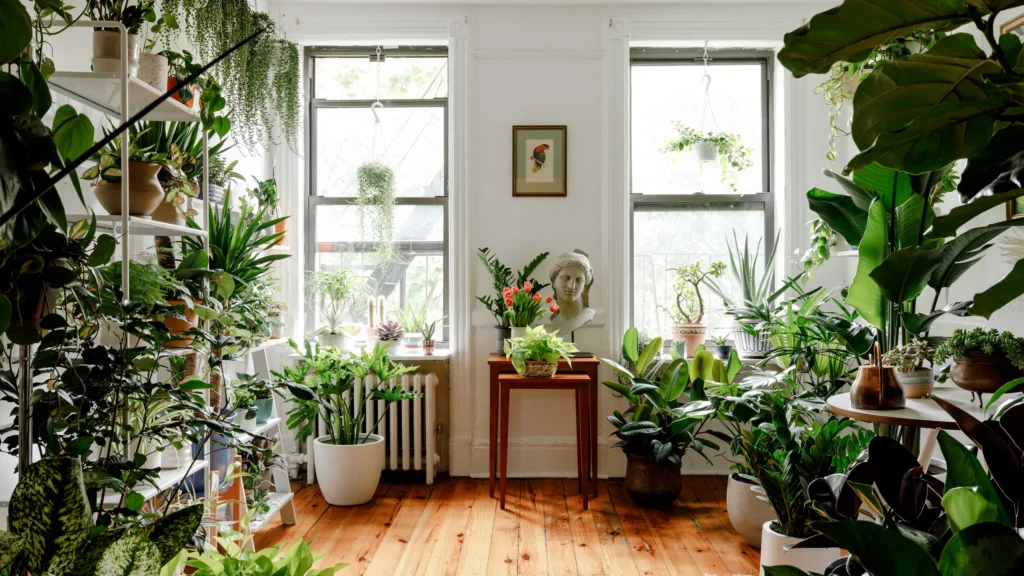Indoor plants have long been cherished for their ability to bring life, color, and vitality into our homes and workplaces. Beyond their aesthetic appeal, however, lies a wealth of benefits that extend far beyond mere decoration. Understanding the importance of indoor plant care is key to harnessing these benefits and cultivating healthier, happier living environments.
1. Air Purification:
One of the most significant benefits of indoor plants is their ability to purify the air we breathe. Through a process called photosynthesis, plants absorb carbon dioxide and release oxygen, effectively filtering out toxins and pollutants from the air. Certain plants, such as peace lilies, spider plants, and pothos, are particularly efficient at removing common indoor pollutants like formaldehyde, benzene, and xylene. Regular care and maintenance ensure that indoor plants remain effective air purifiers, helping to create cleaner and healthier indoor environments.
2. Stress Reduction:
Studies have shown that being in the presence of indoor plants can help reduce stress, anxiety, and fatigue. The calming effect of greenery has been linked to lower blood pressure and heart rate, as well as improved mood and overall well-being. By caring for indoor plants and creating green spaces within our homes and workplaces, we can create sanctuaries of tranquility that promote relaxation and mental clarity.
3. Enhanced Productivity and Creativity:
In addition to reducing stress, indoor plants can also boost productivity and creativity. Research suggests that the presence of plants in indoor environments can improve concentration, memory retention, and cognitive function. Whether it’s a potted succulent on a desk or a lush fern in a corner, incorporating plants into indoor spaces can inspire creativity, foster innovation, and increase productivity levels.
4. Improved Indoor Climate:
Indoor plants play a crucial role in regulating humidity levels and stabilizing indoor climates. Through a process known as transpiration, plants release moisture into the air, helping to increase humidity levels and create a more comfortable indoor environment. Proper indoor plant care, including watering, fertilizing, and monitoring environmental conditions, ensures that plants thrive and continue to contribute to a balanced indoor climate.
5. Connection with Nature:
In today’s fast-paced, technology-driven world, maintaining a connection with nature is more important than ever. Indoor plants offer a tangible link to the natural world, allowing us to reconnect with the rhythms of life and find solace in the beauty of the natural world. By caring for indoor plants and nurturing their growth, we can foster a deeper appreciation for the wonders of nature and cultivate a sense of mindfulness and gratitude in our daily lives.
Indoor plant care is not merely a matter of aesthetics; it is a holistic approach to creating healthier, happier living environments. By recognizing the importance of indoor plant care and incorporating it into our daily routines, we can reap the myriad benefits that plants offer and enjoy the beauty and vitality they bring into our lives. Let us embrace the nurturing role of plant caregivers and cultivate spaces that nourish our bodies, minds, and spirits.

